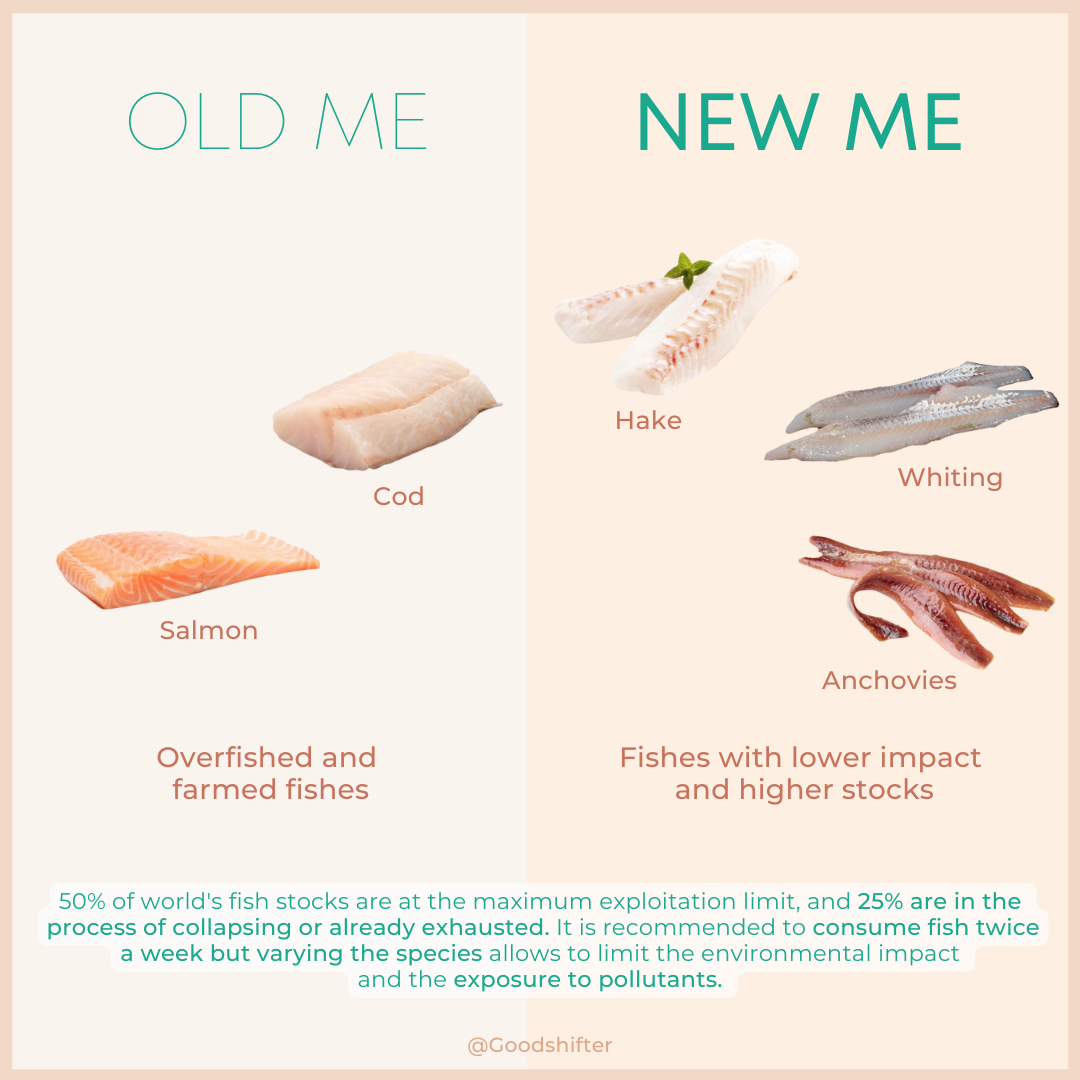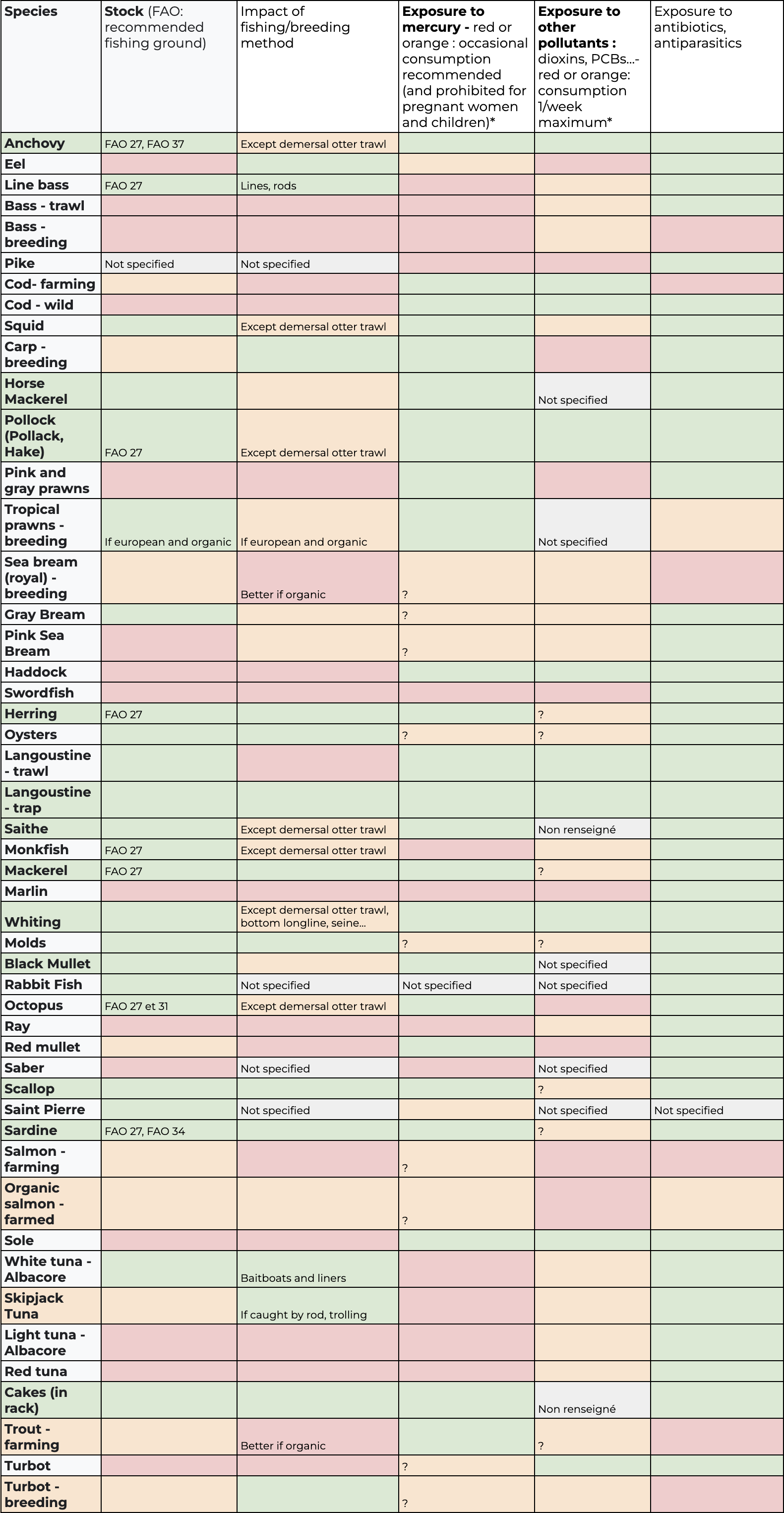
The environmental and health issues with eating fish: Should we consume it? Which quantities and which species to choose?
April 21, 2023Health authorities (ANSES, WHO) recommend eating fish twice a week, including oily fish at least once, to ensure a sufficient intake of omega fatty acids, necessary for the development and functioning of the retina, brain and nervous system and therefore particularly important for pregnant women and children.
Despite this, many voices call on consumers to reduce fish consumption due to the impact on the environment and on consumer health. Indeed, 25% of global fish stocks are collapsing or already depleted. In addition, the pollutants present in the seas contaminate fish and represent a risk for heavy consumers. Indeed, some species may contain high levels of mercury, PCBs or other environmental contaminants, which can be dangerous to our health.
Aquaculture is also problematic: Farmed species are fed animal meal made from fish, which puts pressure on wild stocks. In addition, the fish are treated with antibiotics and antiparasitics which then end up on our plate. Some escape and contaminate the wilderness. Finally, fish farming is polluting the seas because of the many excrements.
So how do you reap the health benefits of fish while minimising the negative effects?
In a nutshell, you need:
- choose your fish wisely,
- vary the species consumed
- do not exceed the recommended weekly intake (1 oily fish and 1 lean fish/week)
And here are some criteria to consider when choosing your fish :
- Stock status and origin: some species are overfished depending on their catch areas. For example, 90% of Mediterranean fish are caught above sustainable levels (See table below).
- Local origin: French or European : fresher, less carbon impact. Choose sustainable and short-circuit fishing products.
- Fishing method : Avoid fish caught with destructive methods, such as bottom trawls, which can damage marine ecosystems(See table below).
- Reproduction period : it is recommended not to consume a species during the reproduction period and to follow the seasonality of the fish.
- Organic products : For farmed fish, favour products with organic labels, in particular the ones that guarantee a better impact on health (less pesticides and antibiotics), less pressure on fish stocks used for food and better animal welfare (density of fish in cages).
- Exposure to pollutants : Avoid over-consumption of fish that contain high levels of mercury, PCBs or other environmental contaminants. The fish most likely to contain high levels of pollutants are often carnivorous fish, such as tuna, swordfish and shark. In general, farmed fish are less likely to contain environmental contaminants than wild fish.
We have tried to bring together the information available on the impact on health and the environment of the different species of fish. We put ? when we found conflicting information. The fishes in green are the species to be favoured in terms of health and the environment on the basis of the information gathered in this table.
